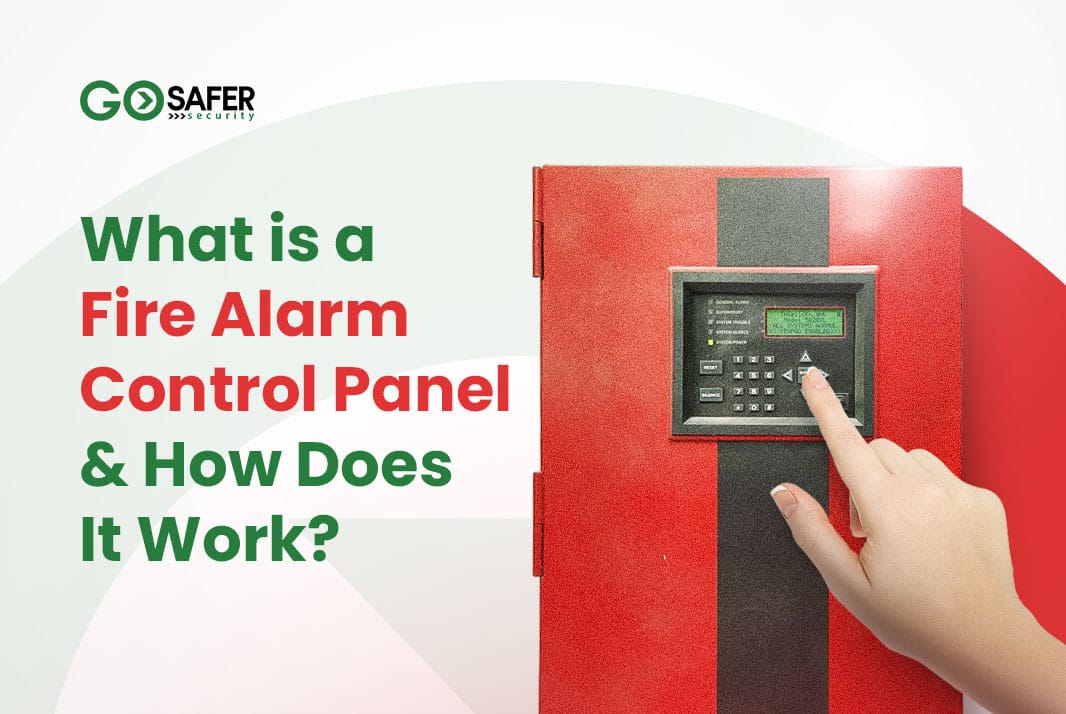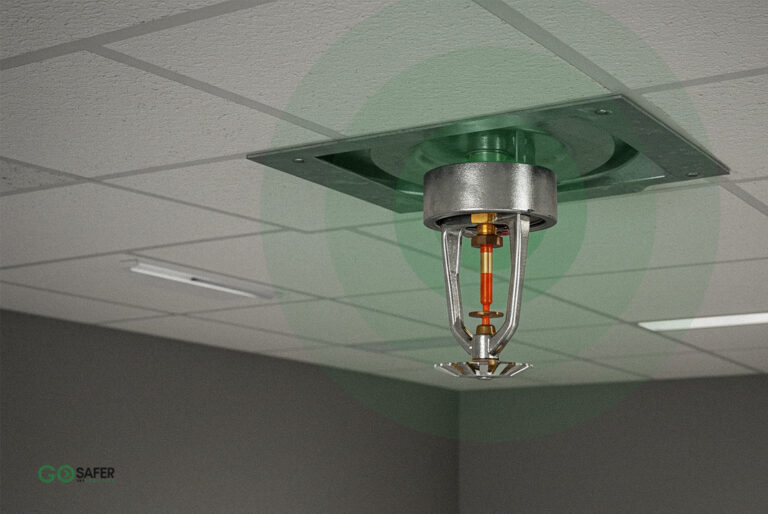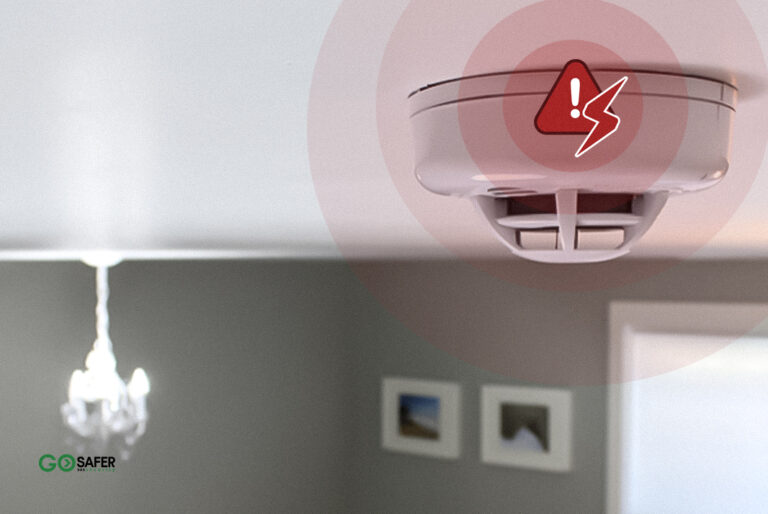Have you ever wondered what is behind the fire alarm system in your home or office? What is the mysterious device that tells you when it’s time to evacuate? It’s called a fire alarm control panel and it’s a critical part of any building’s fire safety system. In this blog post, we’ll explore what is a fire alarm control panel, how it works, and how it can help protect your property and keep you safe.
Get ready to learn about the inner workings of one of the most important pieces of fire safety technology in your home or office.
Table of Contents
ToggleIntroduction to Fire Alarm Control Panels: What They Are and How They Work
Modern fire alarm control panels work differently from those of the past. Modern fire alarm control panels rely on sound-sensitive circuits to sense a fire and achieve the desired outcome, rather than relying only on the heat from a fire. Heat-sensing circuits are more vulnerable to false fire alarms.
A modern fire alarm control panel monitors a series of sounds that can be caused by a fire. If those sounds occur in a predetermined order, the panel acts accordingly. Fires trigger a series of events.
The sequence is similar to this order:
1. The fire alarm panel senses the smoke
2. The panel sends out an electrical signal to the fire alarm
3. The panel sends out a signal to the telephone and phone company to notify the fire department.
4. The panel sends out a signal to automatically close the fire doors. The fire alarm control panel is connected to a variety of other systems and devices.
These systems can include sprinklers, gas suppression systems, water pumps, lighting systems, ventilation systems, and other building management systems. Each of these systems is triggered by the fire alarm control panel, activating them to respond to a fire.
The sound produced by a false fire alarm may not be as distinctive as the sound of a real fire. This makes it more difficult for a fire alarm control panel to detect and respond to a false alarm. To prevent false alarms, the panel can be programmed to detect certain patterns or sequences of smoke or heat, as well as sound frequencies associated with real fires.
5. The fire alarm control panel activates the sprinkler system. Sprinklers are connected to the fire alarm control panel and when triggered, water is released from the sprinklers. This helps to contain and suppress the fire, helping to limit the spread of the fire and minimize damage.
What Types of Fire Alarm Control Panels are Available?
As mentioned above, fire alarm control panels allow you to control all the devices in your home. Whether controlling alarms or Access control, you are the gatekeeper. They offer monitoring services and minimize false alarms.
Here is a list of three categories of Fire Alarm Control Panels:
-
Zone Fire Alarm Control Panels
-
Value Fire Alarm Control Panels
-
Executive Fire Alarm Control Panels
1. Zone Control Panels: Suitable for multiple zones, a Zone Control Panel allows you to monitor up to 64 individual zones. If you plan on having many zones, you will save money by going with a Zone Control Panel.
2. Value Control Panels: Suitable for one zone, or multiple zones with the option to upgrade in the future, a Value Control Panel can save you time and money. Extra modules can be added for extra zones.
3. Executive Control Panels: These control panels allow you to manage a monitored burglar alarm and fire alarm system. This is ideal for homes with multiple alarms. Executive Control Panels are often seen in larger commercial premises.
What is the Difference Between a Control Panel and a Control Unit on a Fire Alarm System?
A fire panel vs. a fire alarm control unit is an important thing to consider when you’re shopping for an alarm panel. Fire alarm panels typically contain all of the signal processing and copper communication paths needed to perform the function of a fire alarm system. They can operate as stand-alone fire alarm devices, networked systems, or a combination of both. There is a wide range of fire panels available, ranging from commercial-grade to residential-grade to single-unit devices.
Control units act as the brains behind the fire panel. They can operate as stand-alone devices, networked systems, or a combination of both, and they generally contain additional intelligence such as input/output modules. There is a wide range of control units available, ranging from commercial-grade to residential-grade to single-unit devices.
Because fire panels and control units are often paired, it’s important to know for certain that you’re getting one of each from one other. This is to prevent a failed fire panel from breaking your alarm system.
How Fire Alarm Control Panels are Used in Conjunction with Fire Suppression Systems
A control system for the fire pump is commonly called an addressable control panel or fire control panel. It receives input signals from indication equipment, fire alarm loops, expansion units, and other devices, and monitors the status conditions of these devices that are connected to the system.
The fire control panel in its final form, as a subsystem, not only includes all devices and devices necessary for communication and the electric power supply, but also a number of switches and buttons for firefighter operations. They are generally placed in a separate room according to receiving signals, differing from control panels that receive a signal without any zone control devices, as well as signal transmission and loop control devices, such as central fire monitors.
The other type of control panel used for the purposes of a communication system is a relay protection panel. This apparatus is composed of a number of relays and operates with direct signals from fire alarm loops, brigade loops and pre-action and delay-action devices.
By means of the relay protection panel, the receiving equipment, signal indicators, and indicators can be connected to the network and linked to fire pump control in case of fire. Some relays in relay protection panels can be equipped with electric locks. Additionally, relays in this equipment are equipped with indication lights.
Smoke Detector Fire Alarm Systems: Understand How Smoke Detectors are Used in Fire Alarm Systems and How They Can Trigger an Alarm Condition
Smoke detectors are used in fire and smoke alarm systems. The function of a smoke detector is to detect smoke and fire. A fire detection and alarm system can consist of smoke detectors and manual pulls from pull stations.
A monitored smoke alarm is connected to a monitoring station. When smoke is generated, the alarm sounds. The monitoring system is instantly notified, checks the signals, operates an alarm system, or contacts the fire department. In some cases, smoke detectors are combined with flammable gas detectors. Such devices detect the presence of combustible gases, such as methane and propane, which may be present in hazardous working environments.
It is important that smoke detectors are regularly tested to check that they are functioning correctly. The area where the detector is located should also be regularly maintained to prevent dust and dirt from clogging the detector sensors. Additionally, the batteries should be checked and replaced when needed.
Fire Sprinkler System and Fire Suppression System Signaling Line Circuits: Discover How They Are Connected with Fire Alarm Control Panels
Fire alarms and emergency lights are connected so that in the case of a fire, the emergency lights turn on, as well as two or more unique tones to indicate that fire is present. However, fire systems are actually connected to a fire suppression system so that alarms signal that a fire sprinkler system must activate. Fire pressurized sprinkler systems are connected to the fire panel, along with the fire alarm panel so that the two circuits activate and contact local authorities that a fire activation has occurred.
Fire alarm systems have a battery that activates when a fire occurs in the building, which is the component that sets off alarms and alerts. However, fire sprinkler systems are not connected to the batteries in fire alarm systems, and are only connected to a double-break toggle switch. The wiring for sprinkler systems is distinct from fire alarm systems, and has to be carefully wire to construct the right type of circuit. To wire sprinkler systems, multiple conductors are hooked up to a solenoid chamber, which provides valve activation, and then has a double-break toggle switch between the fire control panel and the terminal connection. The double-break toggle switch is triggered by a specific sequence of codes, and are actuated by a suppression circuit.
The sequence of codes differs for each suppression system that can be set up through the fire sprinkler control panel. Type A Welsh suppression systems use a code of 1 or 2, which are known to actuate the sprinkler system. Type B Welsh suppression systems use another sequence of codes that differ from a previous suppression system. Type B systems are known to use an actuation signal of “A” or “B”, but many double-break toggle switch configurations use “A” as the actuation signal.
The double-break toggle switch may be triggered by shorting together two large conductors, known as a double-break toggle, which creates a breaking contact between the two halves of the switch. The two halves, when pushed together by a conductor, break the circuit and create a closed contact, which then signals that the circuit is electrically connected.
The double-break toggle switch will be in the circuitry, which triggers a suppression activation signal to the fire control panel. At this point, the fire panel will use the fire suppression system to actuate a fire suppression activation signal to use and fire sprinkler systems. These types of double-break toggle switches are uncommon in existing fire alarm system installations but may be found in older installations.
The Benefits of Installing a Fire Alarm Control Panel in Your Home or Business
People know that fire alarms are important, but there are many different factors that should be considered when installing or upgrading your panel. For instance, there are fire panels that are specialized for commercial use while others are designed for residential use. Both types can be useful, depending upon your building’s size. You should also consider how long you plan on staying or purchasing a home. In the event that you need to resell your building, including a fire panel can increase its value.
Companies that specialize in fire panel installation can help you determine which system is best for you and what enhancements will make your system better. Consider these tips to determine if a fire panel is right for you.
When Is a Fire Panel Important?
If you notice that you are constantly cooking small fires, or you smoke indoors, a fire panel can be lifesaving. Residential fire panels are required by law and should only be used in homes. You can find these panels at hardware stores, home improvement stores and online.
Aside from the installation cost, fire panels are not very expensive. Typically, each unit costs a few hundred dollars. However, when you include the cost of labor and time, the fire panel may cost more than $1,000.
What Are the Advantages of a Residential Fire Panel?
A residential fire panel is important to have because smoke detectors alone cannot identify a fire. A smoke detector operates by reacting to smoke. During the early stages of a fire, there may not be enough smoke present to trigger the alarm.
A fire panel monitors your building or home and can recognize a fire before it becomes large enough that smoke is present.
During a fire alarm, the fire panel will emit a loud, piercing sound. When a detector goes off, the alarm panel will attempt to communicate to the fire department, alerting them that there has been an emergency. A fire panel also monitors smoke and carbon monoxide detectors, alerting the fire department that there is an emergency.
What Are the Advantages of a Commercial Fire Panel?
Commercial fire panels are used when a structure exceeds 25,000 square feet. Typically, commercial properties are larger than residential homes, and more frequent meetings or events occur, necessitating a greater number of detectors. Commercial fire panels are also required when workers are present.
A fire panel helps protect people and property by providing a central system for monitoring and alerting the fire department of a fire.
By law, all homes must have a working fire alarm and carbon monoxide system. If you are building a new home, these alarms must be installed during the construction phase. If you are installing new alarms, there are professional and DIY options.
Professional Installation: For professional installations, you must first find a reputable company. Also verify their permits and insurance, as well as their tech’s certifications.
DIY Installation: If you do a quick search, you’ll likely find plenty of DIY options. However, DIY experts warn us to stay away from illegal installations. For your home to be approved, not only must you legally install a working system, but each device, branch, and sensor must additionally be approved for your area.
Go Safer Security (GSS) is a team with a whole separate guide on fire alarms, so be sure to get in touch with us if you have any questions for us!
The Importance of Proper Maintenance for Fire Alarm Control Panels
When you’re considering fire alarm installation for your building, you might consider going with cheap and fire control panel. After all, fire alarm systems aren’t inherently expensive, right? But while the cost of equipment is important, the cost of fire panel maintenance is equally as important.
In fact, some states across the country require that you keep up with fire panel maintenance in order to stay compliant with fire code regulations. So, the operating costs of a fire panel can actually be more expensive than the cost of buying a brand-new panel.
So why do fire panels require a maintenance agreement? How much are they, and aren’t you able to keep up with routine maintenance yourself?
The pros and cons of fire panel maintenance:
Pros
-
Your fire panel will always be up-to-date. This includes all codes and revisions, which are extremely important when it comes to fire panel protection. Lastly, your company can be contacted in the case of a fire panel malfunction.
-
You save money on false alarms. When your fire panels are out of date, and you’re not dealing with false alarms triggered by outdated equipment, your fire department bills might decrease.
-
You save money with fire alarm repair services. Fire panels are, in fact, complex, delicate machines that need to be handled with care. Our fire technicians are experts at troubleshooting specific issues within fire panels, which means you’ll know that you’ll get the right help, even if your panel’s gone haywire.
-
You have an on-call service team that is ready to save the day in the event a fire emergency does occur.
Cons
-
You have to pay for damaged equipment. If a panel malfunctions, and your husband decides to tinker with it, you might get charged for damages.
-
You pay for replacement parts. This one is obvious but required nonetheless. Sometimes panel equipment gets old or malfunctions, and can only be replaced with newer equipment.
-
You pay for labor costs, even if there’s no real need for labor. The technicians that a company sends might not even need to, but since you signed a service contract, they cost you money.
How to Interpret the Signals From a Fire Alarm Control Panel: Trouble Signals, Alarm Conditions, and Signaling Line Circuits
Different types of fire alarm control panels send out different types of signals. As we’ve seen above, the majority of fire alarm control panels send a ‘trouble signal’ whenever there’s a problem. The trouble with these trouble signals is that they typically only let the user know that the fire alarm isn’t working instead of letting them know the specific problem.
Some fire alarm control panels, though, send out a lot more nuanced signals, giving users more information about what exactly is wrong with the fire alarm. Many fire alarm control panel manufacturers do this by creating different alarm conditions.
Different Fire Alarm Control Panel Trouble Shoot Codes:
-
Code 1: Low Battery Trouble: This indicates the fire alarm system has low or dead batteries that need replacing.
-
Code 2: System Malfunction: This indicates that there could be a wiring issue or a problem with the components.
-
Code 3: Open Circuit: This indicates that a circuit has been opened and will not allow the fire alarm to operate.
-
Code 4: Short Circuit: This indicates that a short circuit has been detected, likely due to a damaged wire.
-
Code 5: System Supervision Trouble: This indicates there is a problem with the fire alarm system’s supervision circuit, which could be caused by a power outage, faulty wiring, or a component failure.
Conclusion
Fire alarm control panels are an essential part of any fire safety system, as they provide information about the status of the system and enable the user to manage it more effectively.
Go Safer Security is the trusted fire alarm company in Maryland, USA, and provides the highest quality fire alarm control panels and installation services. With their years of experience and expertise, you can be sure that your fire safety system is in safe hands.
So why wait? Contact Go Safer Security today and get the best fire safety system for your home or business.
Together we can make a difference in keeping our communities and families safe.







